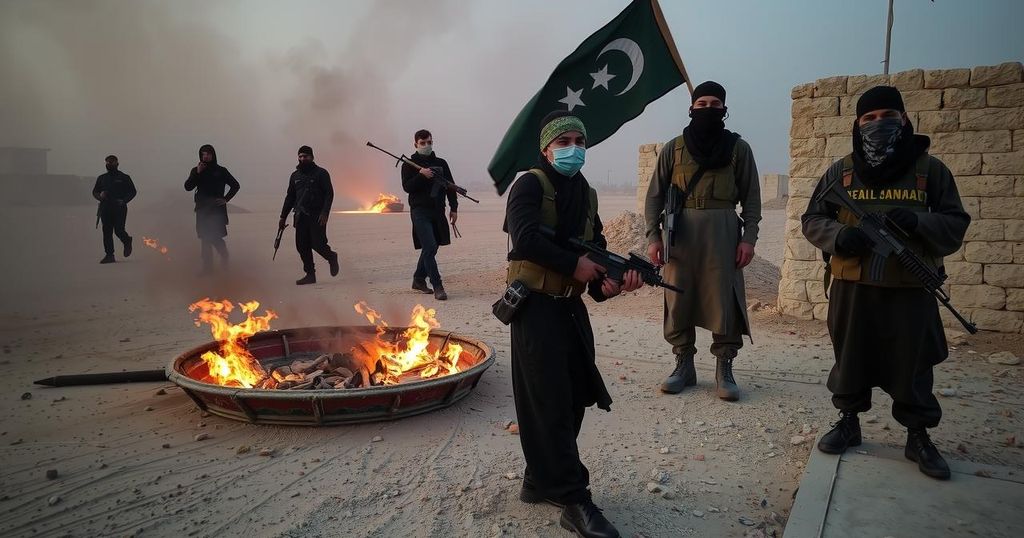The jihadist frustration in Syria is growing due to societal changes under new leadership, exemplified by the reaction to artistic freedoms in Damascus. This situation highlights a conflict between extremist views and emerging recognition of women’s rights and cultural expressions, complicating the socio-political landscape amid regional upheavals.
Recent events in Syria have illustrated the growing frustration among violent jihadists regarding the country’s evolving socio-political landscape. Ahmed al-Sharaa, a designated leader in Damascus, recently rescinded an order that targeted a historic Ottoman palace, which had become a hub for artistic expression. The palace’s female artists, viewed as purveyors of indecorous behavior, were to be evicted under the new regime’s strict oversight, revealing underlying tensions between cultural freedom and extremist ideology.
This episode underscores the conflict between traditional jihadist norms and the emerging dynamics within Syrian society. As Syria’s framework continues to adapt, notions such as women’s rights and cultural diversity are increasingly clashing with radical views, illustrating the discontent among militant factions. In addition, various political developments in the region—such as Sudan’s civil strife and Lebanon’s presidential election challenges—further complicate Syria’s situation, creating a volatile environment for its inhabitants and extremists alike.
The Syrian conflict has been marked by numerous shifts in power dynamics, leading to the rise of various factions, including jihadist groups. Traditional jihadist movements emphasize strict adherence to their ideological doctrines, often opposing modern societal values, including the recognition of women’s rights and artistic expression. The current leadership in Syria, represented by figures like Ahmed al-Sharaa, is navigating these intricacies while attempting to consolidate authority and address the challenges posed by diverse societal elements, thereby shaping the future of the nation.
The tensions between jihadist factions and the evolving landscape of Syrian society are emblematic of the broader struggles occurring in the region. The incident involving Ahmed al-Sharaa reflects an internal discord among extremists who may feel increasingly sidelined by a society embracing change. Consequently, as Syria continues to transition, the radical elements may find their frustrations amplified, posing significant challenges for both governance and social cohesion in the country moving forward.
Original Source: www.economist.com





